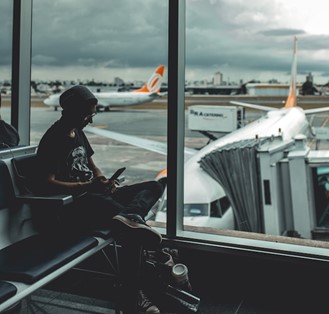The COVID-19 pandemic has accelerated many changes in our daily lives, with remote work being one of the most significant shifts. As companies and employees alike have embraced the flexibility of working from anywhere, a profound impact has been seen on travel behaviors and preferences. The rise of remote work has not only transformed the traditional workplace but has also revolutionized how people think about travel. Angel Bernal Robles delves into how remote work is reshaping travel trends, offering insights into new patterns and emerging preferences.
The New Normal: Work from Anywhere
Remote work, once a perk offered by a few progressive companies, has become mainstream. With advancements in technology and the necessity of maintaining business continuity during the pandemic, many businesses have realized the benefits of allowing employees to work remotely. This shift has given rise to the concept of the “digital nomad” – individuals who leverage technology to work from various locations worldwide.
Longer Stays and Extended Trips
One of the most noticeable changes in travel behavior due to remote work is the increase in longer stays and extended trips. Without the need to return to a physical office, remote workers are taking advantage of the opportunity to spend extended periods in different locations. This trend, often referred to as “slow travel,” allows individuals to immerse themselves in new cultures and environments without the rush associated with traditional vacations.
Accommodation Preferences: Remote workers prefer accommodations that offer reliable internet, comfortable workspaces, and amenities conducive to a work-life balance. Short-term rentals, like those offered by Airbnb, have seen a surge in demand.
Destination Choices: Locations with a lower cost of living, pleasant climates, and good infrastructure for remote work (like co-working spaces and strong internet connectivity) have become popular. Cities like Bali, Lisbon, and Medellín are attracting digital nomads in droves.
Blending Work and Leisure: “Bleisure” Travel
The blending of business and leisure travel, known as “bleisure,” has gained significant traction. Remote workers often extend business trips to explore new destinations or combine work with vacation, leading to a new category of travelers who mix professional responsibilities with personal exploration.
Flexible Scheduling: With more control over their schedules, remote workers can travel during off-peak times, avoiding crowds and potentially reducing travel costs.
Work-Life Integration: Travelers are seeking destinations that offer opportunities for both productivity and leisure. For example, they might choose a city with vibrant cultural experiences and outdoor activities that can be enjoyed after working hours.
Impact on the Hospitality Industry
The hospitality industry has had to adapt to these changing travel trends by offering services tailored to remote workers. Hotels, resorts, and rental properties are increasingly providing amenities and packages designed to accommodate the needs of those who blend work and travel.
Work-Friendly Environments: Hotels are creating dedicated workspaces, enhancing Wi-Fi connectivity, and offering extended stay discounts to attract remote workers.
Community and Networking: Co-living and co-working spaces are becoming more popular, offering not just a place to stay and work but also opportunities for networking and community-building among like-minded individuals.

Shifts in Travel Preferences
Remote work has also influenced the types of destinations that travelers are choosing. There is a noticeable shift towards destinations that offer not only scenic beauty and cultural experiences but also the infrastructure to support remote work.
Rural and Remote Areas: Many remote workers are opting for rural or remote areas that offer tranquility and a break from the hustle and bustle of city life. This trend has been beneficial for local economies that traditionally do not attract a large number of tourists.
Sustainable Travel: There is an increasing preference for sustainable and eco-friendly travel options. Remote workers, who often have more time to spend in one place, are more likely to choose destinations and travel methods that minimize their environmental impact.
Challenges and Considerations
While the rise of remote work has created exciting opportunities for travel, it also comes with its own set of challenges and considerations.
Legal and Tax Implications: Remote workers need to be aware of the legal and tax implications of working from different countries or regions. Visa regulations, work permits, and tax residency rules can be complex and vary widely.
Work-Life Boundaries: Maintaining a balance between work and leisure can be challenging. Remote workers need to establish clear boundaries to ensure productivity while also enjoying their travel experiences.
Conclusion
The rise of remote work is undeniably reshaping travel trends, creating a new landscape where work and travel are more intertwined than ever before. As this trend continues to evolve, it offers exciting opportunities for both remote workers and the travel industry. By understanding and adapting to these changes, businesses and individuals alike can fully embrace the potential of this new way of living and working. The future of travel, influenced by the flexibility of remote work, promises to be more dynamic, diverse, and inclusive than ever before.
